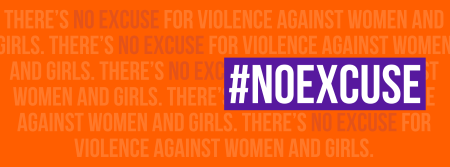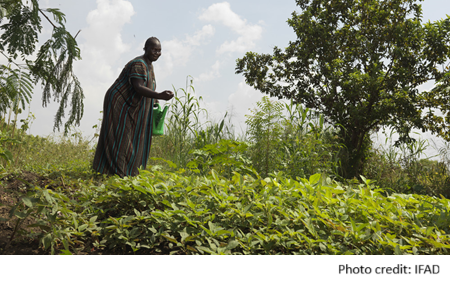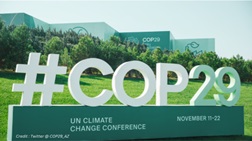"Endemic is the word for a pandemic in places that people in power can ignore. ... If the grotesque combination of corporate greed, government inaction and global underfunding that perpetuates all plagues continues unchecked, endemicity is certain, and its burdens will be borne by people who are poor, Black, brown, LGBTQ and, often, women." -- Emily Bass, AIDS activist and journalist
Click here to read Emily Bass's insightful and troubling opinion piece in the Globe and Mail, If COVID-19 Becomes Endemic, Women Will Bear the Burden.
The Grandmother’s Advocacy Network, alongside its partners in the Canadian International Education Policy Working Group (CIEPWG), welcomes the release of the outcome document launched at the Together For Learning Summit: Engaging Displaced Youth to Transform Education which took place on March 30 and 31, 2022. The outcome document responds directly to the needs and recommendations of refugee and displaced youth themselves. Canada is leading the way toward elevating the lived experiences of children and youth directly affected by conflict and crisis and meaningfully integrating their perspectives into the decisions that affect their lives. Click here to learn more.
Learn about the 3rd African Girls’ Summit where more than 100 young adolescent girls and stakeholders gathered for frank discussions around the theme: Culture, Human Rights and Accountability – Accelerating Elimination of Harmful Practices. Discussion topics included child marriage, teenage pregnancy, female genital mutilation, sexual abuse and human trafficking, how self-esteem issues hinder the pursuit of STEM education and TVET (technical education and vocational training), male-dominated jobs, and more. In particular, the summit focused on the issue of gender equality in education. Click here to learn more and to read the Call to Action that came out of the Summit.
ONE Campaign offers a sobering analysis of the implications for Africa of Russia’s war on Ukraine. From food and oil prices to refugees, racial bias, and diverted attention of leaders, the effects will ripple across African countries. to find out more.
Africa is not on track to deal with climate change impacts, scientists say. Threats to food security are particularly high, due to climate change-driven droughts, floods, extreme heat and pests. Meanwhile, lack of finance for adaptation and clean energy remains an urgent problem. To find out more about climate adaptation challenges and hopes for the African continent click here.
Imagine a gender equal world. A world free of bias, stereotypes and discrimination. A world that is diverse, equitable and inclusive. A world where difference is valued and celebrated. Together we can forge women's equality. Collectively we can all #BreakTheBias
For six ‘missions’ that International Women's Day has identified to help forge a gender equal world click here.
On February 17, Canada's Minster of International Devlopment Harjit Sajjan announced that $315 million of Canada’s five-year, $5.3-billion climate finance commitment will be available for organizations in Canada and the Global South to partner on climate adaptation projects. Minister Sajjan said the funding model is going to be “as creative as possible” and cater to the needs of specific nations and regions. He hopes the program can give small, local organizations doing “tremendous work” the resources needed to have a “massive impact” in their area.
"This is a great day for women on the front lines of the climate crisis, especially women leading change in nature based solutions in their communities in the Global South. Thank you Minister Sajjan." -- Janet Siddall and Pat Dolan, Co-Chairs Grandmothers Advocacy Network
Click here to learn more.
The Intergovernmental Panel on Climate Change (IPCC) is the United Nations body for assessing the science related to climate change. It is scheduled to release its next assessment report on February 28, 2022. The report is expected to lay out in stark detail the extent to which climate change is destroying people’s lives, livelihoods and well-being and damaging ecosystems and biodiversity. In anticipation of the release of this report, civil society organizations are already speaking up for urgent action.
“The climate crisis is a human rights crisis, and the latest IPCC report will confirm the immense human suffering it will bring. Developed nations – who have contributed the most to heating our planet – must do more to address the inequalities, loss, and damage driven by global heating. They must increase their support to developing nations and the most vulnerable communities, who did the least to cause this crisis. Decisive action on climate is not a ‘cost’: it is an investment, not just in our future, but in our survival. Such investment would represent the greatest cost-saving of human history.” -- Steve Trent, CEO and founder, Environmental Justice Foundation
Click here to read more.
“No other event like the COVID-19 pandemic has shown that reliance on a few companies to supply global public goods is limiting, and dangerous. In the mid- to long-term, the best way to address health emergencies and reach universal health coverage is to significantly increase the capacity of all regions to manufacture the health products they need, with equitable access as their primary endpoint." -- WHO Director-General, Dr Tedros Adhanom Ghebreyesus
Six countries have been chosen to build vaccine production factories as part of a World Health Organization initiative. The first African countries selected to receive the technology necessary to produce mRNA vaccines against COVID-19 are Egypt, Kenya, Nigeria, Senegal, South Africa and Tunisia. Click here to read more.
According to a recent UN report, food insecurity is soaring in twenty “hunger hotspots”, many of them in sub-Saharan Africa. Four countries in particular are currently at greatest risk: Ethiopia, Nigeria, South Sudan and Yemen. Click here for a summary of the report’s warnings. To access the full 48-page report, click here
Pages


